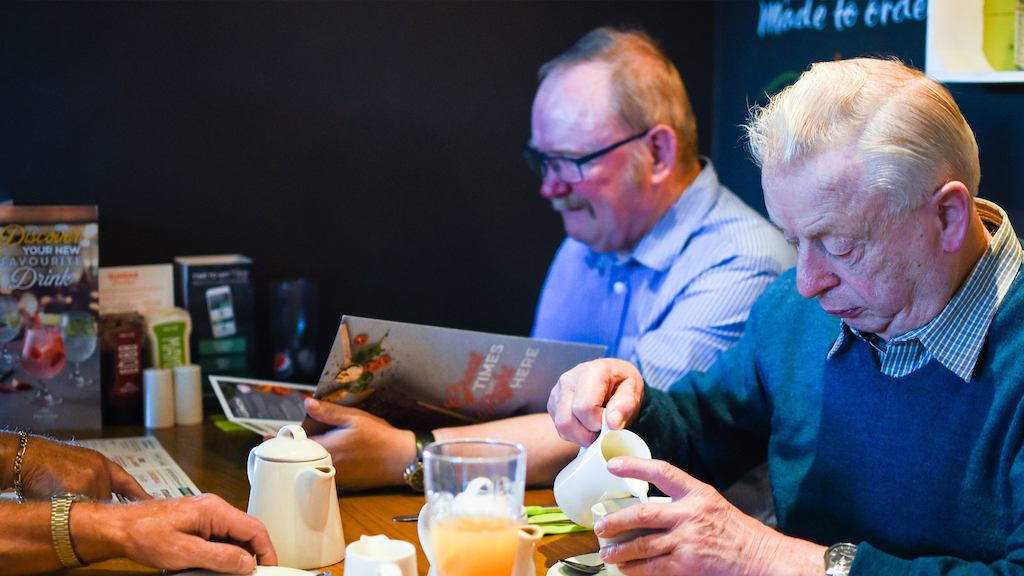“Come along and join us for a cuppa” – Jo Stapleton and her colleagues at Age UK Camden aim to enable socially isolated people seek help with everyday problems they face and be more connected to their communities. Jo, an Outreach Manager, and her colleagues have found older men to be one of the hardest to engage groups in their work.
Research shows that older men are often at greater risk in comparison to women due to their ‘perceived poor help-seeking behaviours, masculine traits, a disinterest in their own health, limited health literacy in marginalised groups of men, and disengagement with traditional models of health service delivery’ (Alpass and Neville, 2003; Macdonald 2005; Smith 2007; Wilson and Cordier, 2013).
In Camden, Jo and her colleagues encourage residents to come out of their homes and do simple things like chatting over tea. Residents sometimes encourage their neighbours to come with them, and Jo often works with local housing associations to host pop up events like these.
Jo says, “We are not running something, we are hosting. We are just really trying to reach and encourage people who wouldn’t normally do things, come and have a cup of tea with us. Once we’ve met them, they will speak to neighbours that they haven’t really spoken to before”.

